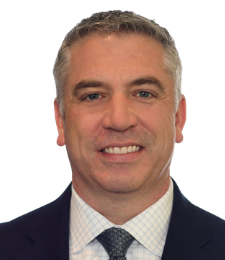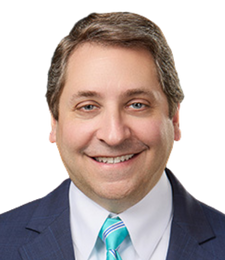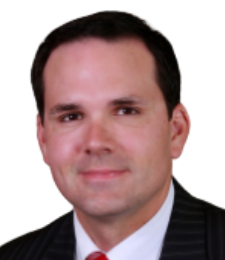I’m thrilled to announce that Bedard Law Group is the new sponsor for the Compliance Digest. Bedard Law Group, P.C. – Compliance Support – Defense Litigation – Nationwide Complaint Management – Turnkey Speech Analytics. And Our New BLG360 Program – Your Low Monthly Retainer Compliance Solution. Visit www.bedardlawgroup.com, email John H. Bedard, Jr., or call (678) 253-1871.

Every week, AccountsRecovery.net brings you the most important news in the industry. But, with compliance-related articles, context is king. That’s why the brightest and most knowledgable compliance experts are sought to offer their perspectives and insights into the most important news of the day. Read on to hear what the experts have to say this week.
Judge Grants MTD in FDCPA Case Over Lack of License
In a case that was defended by Rick Perr and the team at Kaufman Dolowich & Voluck, a District Court judge in New Jersey has added attempting to collect on a debt without the proper license to the growing list of claims that do not automatically confer standing for a plaintiff to sue in federal court, granting the defendant’s motion to dismiss because the plaintiff did nothing other than file this lawsuit. More details here.
WHAT THIS MEANS, FROM DAVID SCHULTZ OF HINSHAW CULBERTSON: In a case that had been pending for over two years, the court dismissed it because there was no Article III injury in fact. Valentine v Unifund. This seems to be a weekly, or even more common, occurrence. In this instance, plaintiff claimed the collector (DAP III) was not properly licensed. In response to the motion to dismiss, plaintiff claimed standing/injury for receiving a “misleading” collection letter, asserting that it was sufficient to be deprived of truthful, non-misleading information. The court disagreed, ruling that it was insufficient to establish a concrete injury, absent some action or inaction taken in response or other form of injury. The court further noted that plaintiff does not allege she experienced any consequence or adverse effect due to the letter, or that she took any action or inaction based on it.
The battle is not over yet. Plaintiff can try to amend (which seems futile) or go to state court and see if she gets a better reception. The defendant surely will be ready for either action.
THE COMPLIANCE DIGEST IS SPONSORED BY:

Judge Partially Denies MTD, Rules Plaintiff Has Standing in FDCPA Case Over Phone Calls
If I am reading this case right — and I will remind you that I am not a lawyer, I just play one on webinars — a District Court judge in Illinois — the home of no standing rulings — has determined a plaintiff has standing in a Fair Debt Collection Practices Act lawsuit against a collector accused of allegedly making a harassing number of phone calls by way of alleging intrusion upon seclusion. The judge did dismiss the other two counts against the defendant. More details here.
WHAT THIS MEANS, FROM CHUCK DODGE OF HUDSON COOK: This standing case is based on claims related to calls allegedly made after the debtor asked the debt collector to remover her number from its database, thinking that they must have had the wrong number. The Plaintiff asserted a series of FDCPA claims in her complaint, and the debt collector moved to dismiss for lack of standing. The judge in the Northern District of Illinois reviewed the critical elements of a standing case as articulated in Spokeo and Ramirez and focused on whether the plaintiff had established allegations that amounted to an injury in fact that was traceable to the debt collector’s conduct. Taking the lead from Spokeo and Ramirez and even the arguments found in Hunstein cases, the court looked to case law about the tort of intrusion upon seclusion to analogize the potential intangible harm from the common law in those case to the potential harm a consumer can suffer from an alleged FDCPA violation (like calling after the consumer asks the debt collector to stop calling). The court ultimately found that repeated unwanted calls alleged to violate the FDCPA create the same kind of harm to the affected consumer as a claim of intrusion upon seclusion, referencing cases that “recognized liability” for intrusion upon seclusion where someone called with such persistence and frequency “as to amount to a course of hounding the plaintiff.” So the court found a potential concrete harm to the consumer plaintiff based on the unwanted calls and allowed that claim to continue. These standing cases have generated a lot of interest on both sides as the courts take a hard look at what plaintiffs have to demonstrate to establish standing. These standing cases benefit the collection industry by requiring consumers (and their lawyers) to prove that alleged FDCPA violations – almost always technical – actually caused them some kind of harm before debt collectors will consider settling. We have not fully emerged from the era of “nuisance” settlements of cases based on alleged technical violations, but requiring the plaintiffs’ bar to limit the cases they threaten and bring to those where they have to show that the alleged violations actually caused some harm is feeling like a step in a productive direction.
Judge Grants MTD in FDCPA Claim-Splitting Case
For at least the third time against different defendants and the second time against the same defendant, a District Court judge in Rhode Island has granted a defendant’s motion against a plaintiff who files lawsuits alleging violations of the Fair Debt Collection Practices Act for essentially each phone call he receives. More details here.
WHAT THIS MEANS, FROM NATHAN COPELAND OF DREHER TOMKIES: Plaintiffs seeking to take advantage of statutory penalties by spitting claims is not uncommon. This case serves as a reminder to screen accounts for problematic serial plaintiffs to avoid unnecessary and potential nuisance litigation.
CFPB Publishes Rulemaking Agenda That Has Doubled in Size in Six Months
The Consumer Financial Protection Bureau hasn’t officially announced it yet, but its regulatory agenda as of the Fall of 2022 has been published, a document that is updated twice a year to detail its planned rulemaking activities, and there are several items on the list that likely pertain to companies in the accounts receivable management industry. More details here.
WHAT THIS MEANS, FROM RICK PERR OF KAUFMAN DOLOWICH & VOLUCK: The ARM industry has come to expect telegraphing from the CFPB when it comes to its regulatory agenda by way of its twice-yearly update. The Fall 2022 agenda was recently published and included several prospective initiatives. Perhaps the most interesting item is the “pre-rule” stage inclusion of Fair Credit Reporting Act rulemaking. It is no secret the CFPB has aggressively tackled FCRA compliance in its enforcement activities. Clarification on several aspects of the FCRA in formal rulemaking is the logical next step. Like Reg F, the ARM industry needs to be prepared to address whatever is announced. Unlike Reg F, this rulemaking will be enacted by a less friendly CFPB.
Appeals Court Affirms Ruling for Defendant in FCRA Case Over Possibly Discharged Debt
For those of you who don’t credit report, you might read this sentence until you see that it’s a Fair Credit Reporting Act case and move on to something else more important, but this ruling from the Court of Appeals for the Second Circuit also has bankruptcy implications as well, so it applies to more than just those that have to comply with the FCRA. The Court has affirmed the dismissal — albeit on different grounds than the District Court did — of a case that turns on whether the inclusion of a debt on an individual’s credit report is inaccurate because the debt was dischargeable during bankruptcy proceedings. More details here.
WHAT THIS MEANS, FROM LORAINE LYONS OF MARTIN LYONS WATTS MORGAN: The issue before the 2nd Circuit was whether the Credit Reporting Agency (CRA) accurately reported a debt. The District Court held in favor of the CRA, and the 2nd Circuit affirmed, but under a different analysis. The 2nd Circuit agreed with other circuit courts and found if the CRA has to be the jury to resolve a legal dispute to determine the accuracy of a debt, then the claim is non-cognizable under the FCRA. However, if a CRA fails to accurately report information from a readily verifiable and straightforward application of law to facts, then this is a cognizable inaccuracy under the FCRA.
Although there is no bright line between legal and factual inaccuracies under the FCRA, the 2nd Circuit is in step with the other federal courts in ruling that CRAs do not need to be the trier of fact to determine the accuracy of a consumer’s debt.
Senators Launch Inquiry into Medical Credit Cards
A group of Senate Democrats, including Sen. Elizabeth Warren [D-Mass.] and Sen. Sherrod Brown [D-Ohio], the chair of the Senate Banking Committee, have opened an investigation into medical credit cards and the “potential harm they may inflict on patients.” The Senators sent letters to Synchrony Financial — which offers CareCredit — and Wells Fargo, looking for more information about how pervasive use of the cards is, the terms consumers receive when using the cards, and how many consumers become delinquent or default on the cards. More details here.
WHAT THIS MEANS, FROM LESLIE BENDER OF EVERSHEDS-SUTHERLAND: As 2022 drew to a close the United States Senate issued a request to Synchrony Financial and Wells Fargo & Company regarding medical credit cards and their impact on patients. Interestingly, in the six months leading up to the letter from Senators Warren, Markey, Sanders, Murphy and Brown, a drumbeat of stories began emerging in major news outlets about patients’ medical credit card woes. This raises an interesting question about whether a Congressional inquiry in this area signals there may be state and federal regulatory focus on, as Director Chopra has mentioned in the past, possible “repeat offenders.” Alternatively, might there also be a possible perfect storm of regulatory attention on medical credit cards and buy now, pay later (BNPL) has been moving into healthcare markets.
During the pandemic, “buy now, pay later” (BNPL) services like AfterPay, Sezzle, Walnut and PayZen entered the consumer healthcare finance arena when they began launching BNPL options tied directly to medical providers to allow customers to purchase eyeglasses, finance medical bills, and make purchases from retailers like CVS. BNPL companies continue to form relationships with healthcare providers and are evolving more consumer financial projects specifically to allow consumers to pay healthcare related expenses.
In regard to potential “repeat offenders,” nearly a decade ago the Consumer Financial Protection Bureau (CFPB) under Director Richard Cordray ordered GE CareCredit to refund $34.1 million to consumers who were alleged to be victims of deceptive credit card enrollment tactics. Director Cordray said “[m]edical debt is already a big problem for many Americans. Poor credit card transparency should not be making the problem even worse.” That CareCredit enforcement action focused on these areas: (a) deceptive enrollment processes – namely that service providers misled consumers during the enrollment process about the terms and conditions of the extensions of credit and CareCredit itself was uninvolved in providing oversight and monitoring, thus allowing the deception to continue; (b) inadequate disclosures – service providers lured consumers into enrolling for “interest-free cards” without sufficient explanations that in actuality they were agreeing to a deferred-interest product with a 26.99 percent interest rate; and (c) poorly trained staff – the CFPB noted that staff received little if any training on the CareCredit product or its terms and conditions and even participating healthcare providers admitted they were confused by the deferred-interest card. A concurrent investigation was conducted by New York’s attorney general and separate settlement agreement resulted. The Government Accountability Office (GAO) conducted extensive research on the medical credit card market and issued a report to Congress in 2014 summing up its findings. The GAO’s report reported similar findings to the CFPB’s in CareCredit – and similar to the issues now being raised by the Senate.
Following the CareCredit enforcement action, the National Consumer Law Center (NCLC) conducted and published research titled “Deceptive Bargain: The Hidden Time Bomb of Deferred Interest Credit Cards.” At the time, the NCLC focused on both the Synchrony CareCredit Card and Citibank’s medical credit cards and raised many of the issues that are raised in the current Senate inquiry letter. These issues include consumer confusion over what deferred interest really is, shockingly high APRs, minimum payments that do not amortize the balance of the revolving (or nonrevolving) credit, and potentially that the most economically vulnerable consumers suffer most from these financial arrangements.
What does this enforcement history combined with the new Senate inquiry mean for the credit and collections industry? In both first and third party medical debt servicing, a growing number of healthcare providers contract with medical credit card companies and balance transfer lenders for a number of logical business reasons (such as allowing patients a longer repayment time interest free than physicians or hospitals have the resources or ability to manage). For healthcare agencies who service accounts for healthcare providers that have contracted with CareCredit or other issuers who are able to offer their patients medical credit card (or extended payment plans in the form of balance transfer loans), agencies may want to consider taking steps to assure they fully understand exactly what the terms and conditions of these financial accommodations are. Further, agencies may want to give thought to additional training for any representatives expected to offer these repayment options to customers on these details so they are able to speak about them with consumers. A healthcare collection agency (or first party agency) may want to ask its healthcare clients offering these services if they are able to provide the agency with an opportunity to warm-transfer potential medical credit card customers right to the credit card issuer to be enrolled in the program (with the customer’s consent). Folks in the accounts receivable management industry may want to track the developments here, not only before the Senate but in the media, among state attorneys general, and with the CFPB and FTC as this may be emerging as a new hot medical debt burden topic. The Senators wrote, “[a]s we work to reform our healthcare system so no individual faces medical debt, we remain concerned about circumstances that serve only to exacerbate financial harm of unaffordable healthcare.”
FCC Affirms 3-Call Limit to Landlines, Amends Consent Requirements to Make More Calls
The Federal Communications Commission has issued a declaratory ruling in response to pair of requests — including one made by ACA International — related to a 2020 order implementing portions of the Pallone-Thune Telephone Robocall Abuse Criminal Enforcement and Deterrence (TRACED) Act, affirming a three-call-limit for calls made using automated telephone dialing systems to residential lines, while also granting callers the opportunity to obtain consent from individuals if they wish to make more calls than allowed. The FCC also granted a request from ACA that prior express consent for calls made by utility companies to wireless phones equally applies to residential landlines as well. More details here.
WHAT THIS MEANS, FROM DAVID KAMINSKI OF CARLSON & MESSER: Well, the FCC 2020 revised exemption restrictions for prerecorded message calls to landlines are FINALLY here, after being on an indefinite hold. These FCC new rules change the game with regard to pre-recorded message calls to landline phones. The 1992 FCC TCPA Order exempted from the TCPA’s restrictions commercial pre-recorded message calls to landline phones that did not include advertising. However, with the new December 27, 2022 Order, that has changed. The new rule provides:
- The FCC has limited the number of exempted calls that can be made to a residential line to three artificial or prerecorded voice calls within any consecutive thirty-day period as long as such calls are commercial in nature and do not constitute telemarketing.
- There are no restrictions or limitations as to calls made to landlines using dialers or autodialers that do not leave prerecorded messages.
- A Caller can get around the 3 in 30 day prerecorded message restriction if they have “prior express consent” which can be obtained orally, or in writing. This is the same type of consent used to make autodialed or prerecorded message calls to cell phones. (Per the FCC 1992 and 2008 Orders, the voluntary providing of a phone number by a consumer constitutes express consent to be called via automatic telephone dialing systems and prerecorded messages, absent instructions to the contrary)
- The New rules also require that artificial or prerecorded message calls allow residential telephone subscribers to “opt out” of such calls in TWO ways: (1) by dialing a telephone number (required to be provided in the artificial or prerecorded voice message) AND (2) to make a do-not-call request by an automated, interactive voice and/or key press-activated opt-out mechanism.
When do the New Rules Take Effect? The effective date of the amended rule is six months after publication in the Federal Register.
TAKEAWAYS FROM NEW RULES: COMPLIANCE POINTERS
- Work with IT to place restrictions on prerecorded message calls to landlines to 3 in a consecutive 30 day period and to allow for a lift of such restrictions if express consent is obtained.
- Work with IT to ensure prerecorded message calls include the FCC two required opt out options.
- Train employees to confirm “consent” to call a specific number dialed during every call made to the consumer. That way, you can capture consent. Ex. “Do we have permission to call you at this number for any calls we may make”?
- Once “consent” is obtained, make sure the landline phone number is “flagged” with a permission status code to allow for prerecorded message calls without the FCC 3 in 30 restriction and to allow dialer calls and text messaging. NOTE: there is no 3 in 30 rule as to any type of calls made to cell phones. All that is needed is prior express consent to make such calls which then allows dialer calls, text messages, and prerecorded messages.
- Continue to use “scrub” vendors to identify landlines and cell phones.
- RECORD all calls to obtain “proof” of consent to call when consent is given orally. Maintain the recordings for minimum of 7 years. REMEMBER: obtaining consent to call means there are no restrictions on the number of prerecorded message calls that can be made to landlines, absent instructions to the contrary. (Subject to any state law limitations).
- Update your policies and procedures to address all of the above.
Don’t panic – the above is completely manageable.
Judge Grants MTD in FDCPA Class Action Over ID Theft Disclosure in Letter
A District Court judge in New Jersey has granted a defendant’s motion to dismiss on the grounds the plaintiff lacked standing to file a class-action lawsuit accusing the defendant of violating the Fair Debt Collection Practices Act in relation to an identity theft disclosure that was made in a collection letter. More details here.
WHAT THIS MEANS, FROM MICHAEL KLUTHO OF BASSFORD REMELE: This case conjures up the old adage “If a tree falls in the woods and no one is around when it happens, does it make a sound?” in other words, was there standing in this case.
The involved consumer received an initial validation notice. In addition to the standard notice of validation rights, the letter also informed the consumer that if they were a victim of identity theft, they should contact the creditor directly. This statement of additional rights available to the consumer – essentially, a good deed by the agency – conjures up yet another adage. “No good deed goes unpunished.”
The consumer sued the agency, claiming that he was confused about how to exercise his rights. The court was not buying it. The court noted that the consumer failed to allege that he took any action after receiving the letter. He did not dispute the debt with the agency, and did not contact the creditor about any claim of identity theft. Nor did he allege that the debt was the result of identity theft. Apparently, the only person who was confused by the letter was the consumer’s attorney. In the end, the federal judge concluded that the plaintiff lacked any real injury and based upon this, dismissed the claim for lack of standing.
Appeals Court Upholds Dismissal of FCRA Class-Action Over Code Used to Report Debt During Pandemic Forbearance
The Court of Appeals for the Ninth Circuit has affirmed a lower court’s ruling in favor of a defendant that was sued in a class action for violating the Fair Credit Reporting Act because of the code it used when furnishing information about the debt to credit reporting agencies while the account was in a forbearance plan during the COVID-19 pandemic, ruling the lower court did not make a mistake in dismissing the complaint. More details here.
WHAT THIS MEANS, FROM HEATH MORGAN OF MARTIN LYONS WATTS MORGAN: This is a great decision for the industry as it broadens what a furnisher may report to be safe from potential FDCPA litigation. While there are many compliant codes to report upon a disputed status of an account, or upon an indication of hardship, furnishers know that there are really only a few codes that are “safe” from threatened FCRA litigation. This case from the 9th Circuit affirms the ability of a furnisher to use a “D” code in response to economic forbearance in addition to the “)” code. Hopefully this case law will help eliminate the trend of Covid based FCRA litigation based on incorrect codes that we have seen pop up in the past year.
I’m thrilled to announce that Bedard Law Group is the new sponsor for the Compliance Digest. Bedard Law Group, P.C. – Compliance Support – Defense Litigation – Nationwide Complaint Management – Turnkey Speech Analytics. And Our New BLG360 Program – Your Low Monthly Retainer Compliance Solution. Visit www.bedardlawgroup.com, email John H. Bedard, Jr., or call (678) 253-1871.


















